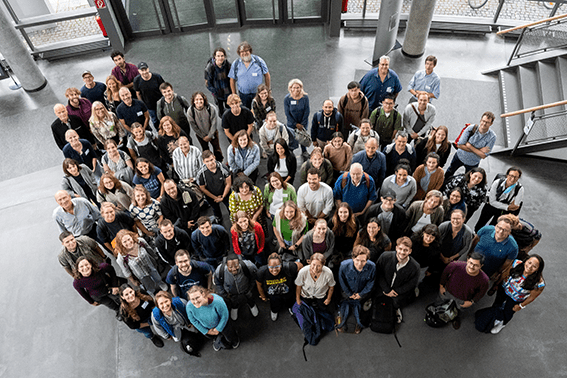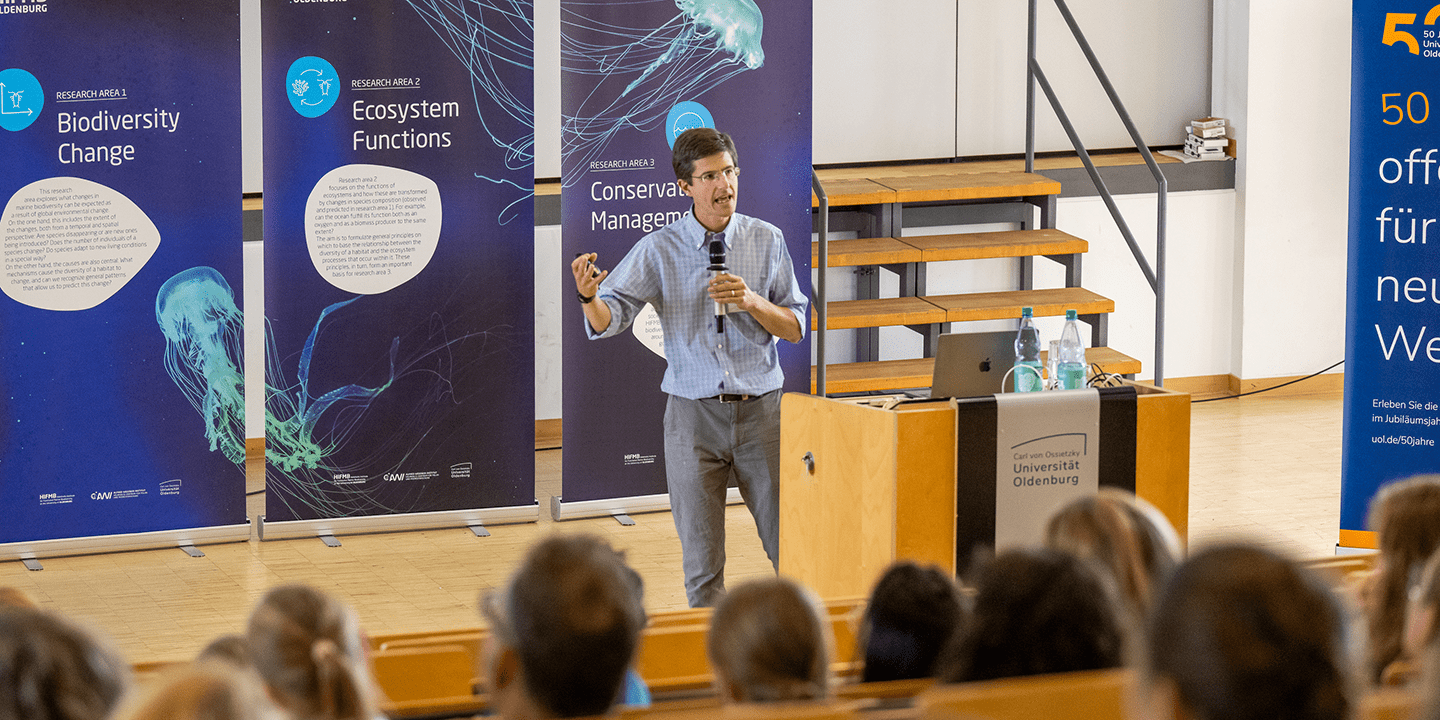The 2nd Oldenburg Climate Symposium was headlined “Climate, People, Ocean” and was meant to be a multidimensional workshop with offerings to scientists, early career professionals, students, policymakers, and the general public. A safe bet for a successful conference is to give excellent researchers the time to develop their ideas in front of the public. We invited eight speakers from near and far to give their personal perspective on the ocean climate connection.
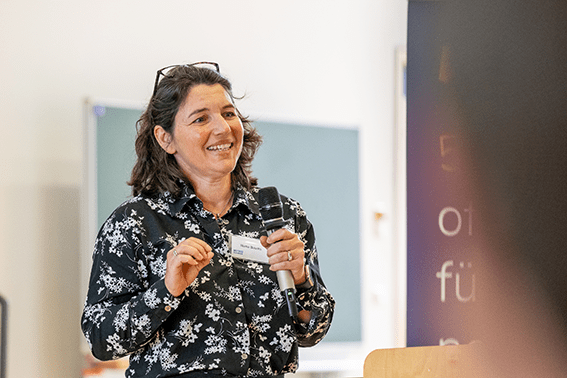
Thereby, we learned to interpret current climate change in the context paleoclimatology (Bärbel Hönisch, New York) and –biology (Wolfgang Kiessling, Erlangen). We differentiated between species ability to adapt (Iliana Baums, Oldenburg) or to move (Malin Pinsky, Santa Cruz) in response to changing climates. We focused on coastal ecosystems under sea level rise (Kerrylee Rogers, Wollongong), and heard examples of working with indigenous people in polar (Chris Zappa, New York) or tropical (Annette Breckwoldt, Bremen) regions. Despite these latter talks showing examples of how collaboration on climate change issues can work, the topic itself and the facts amounting pictured a rather dire future for marine ecosystems and biodiversity.
We also addressed the question why these facts don’t suffice to change minds. We incorporated art into the program, both as a means of communication that includes emotions, but also as a way for speakers and audience to reflect the talks. The eighth invited speaker explicitly addressed science art communication (Andrea Baldini, Amsterdam), all talks were graphically recorded by a visual artist, and after each half day of talks musicians spontaneously reacted to images, which were prompted by utopian and dystopian marine futures described by speakers and converted into artwork by AI-assisted artists. All speakers and many members of the audience explicitly spoke and wrote about the power of including this into the program.
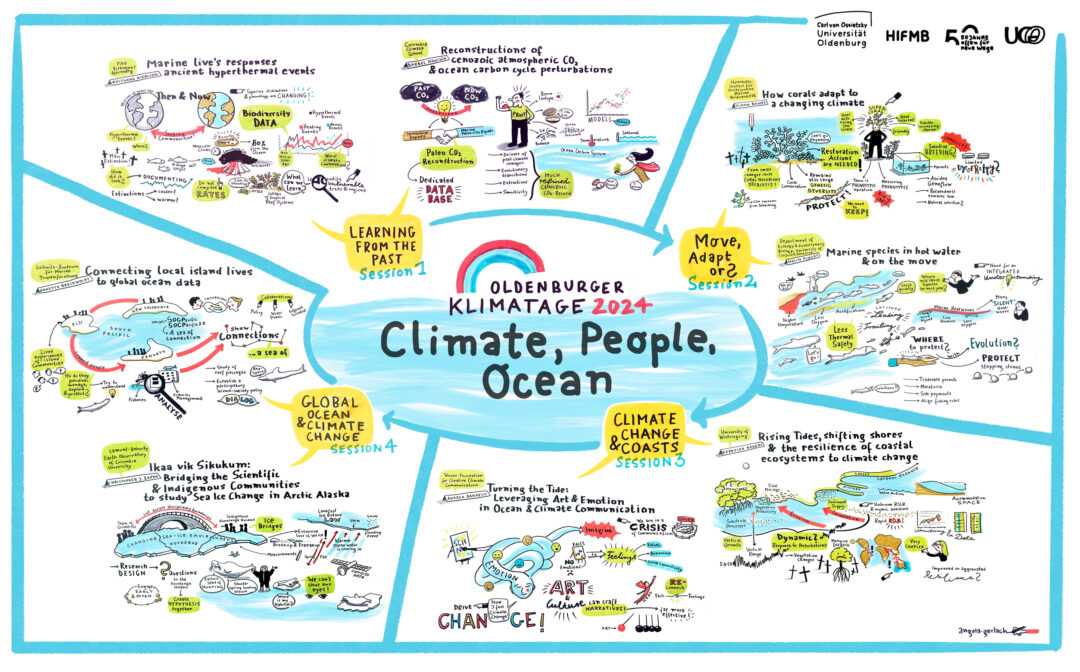
Working in a global change mode especially affects the next generation(s) of scientists and teachers, which we tried to reflect by offering extended discussion time between early careers and the invited speakers. I was happy to see a core group of PhD students preparing the afternoon workshops and even more happy to hear that their discussion with the invited experts was lively, fruitful and continued over a joint dinner. Likewise, a special workshop on mental health issues while doing research in crisis mode was well received by all participants. Additionally, I had the pleasure to prepare a science policy interface with an environmental science undergraduate course. The students conducted a World Café format with regional representatives from politics, administration, economy, education and NGOs and both students and decision makers were highly positive about the discussion about coastal protection, energy system transformation, multi-use coasts and teaching.
In the public section, we offered an open film evening with a polar research documentation and scientific experts answering questions about their research, which was well received. The symposium was concluded by an evening talk about negative carbon emissions and the need for action by Ottmar Edenhofer (Potsdam Institute for Climate Impact Reserach), which again was followed by a lively and long discussion session with a well seated auditorium.
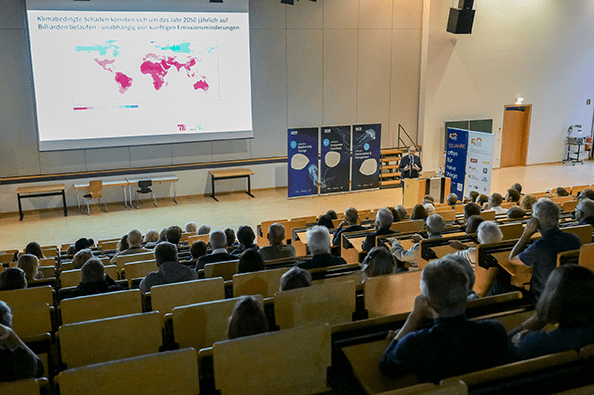
So nothing to complain about? I was a bit underwhelmed by the attendance during the science sessions, offering the chance for discourse with experts is obviously not per se seen as a chance. Still, those present had great discussions and were highly positive about the interactions with experts and with the art(ist)s. And the afternoon discussions, workshops, science-policy interfaces and other activities were by contrast evaluated overwhelmingly positive. Which leads to a final ingredient for a successful symposium, the flawless organizational talent of Sophie Eggert and others at HIFMB that prepared each program item with care, interacted with all invited speakers and guests, organized travel, accommodation and catering.
